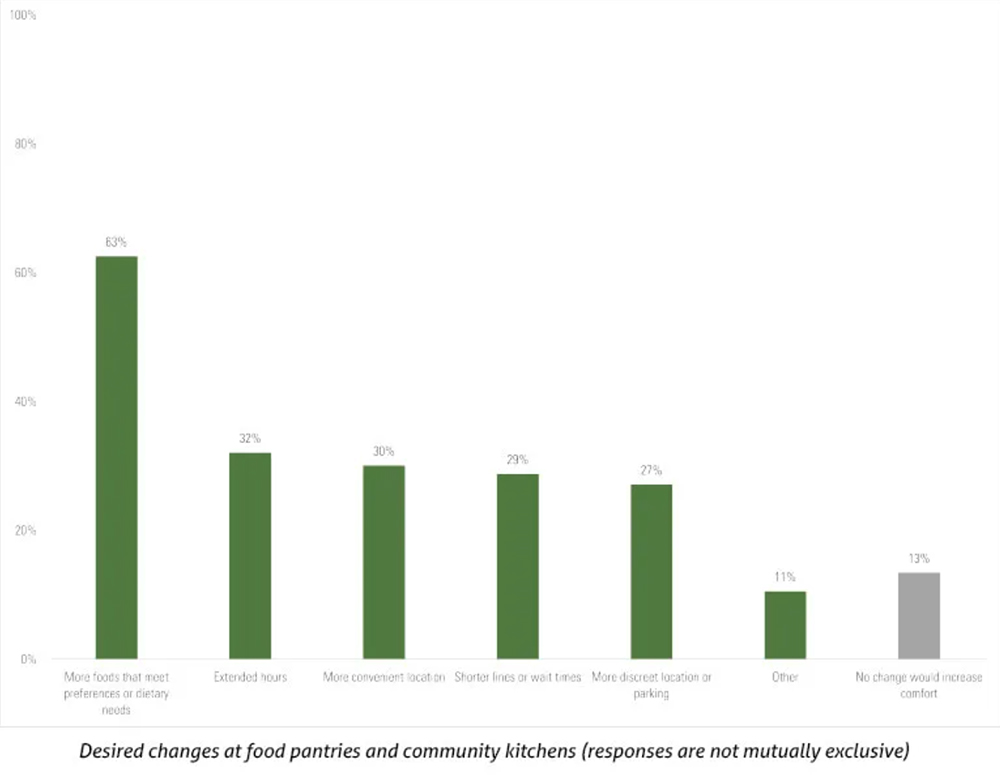
(Courtesy of OU) While their friends and neighbors are feverishly shopping and cooking for Pesach, thousands of kashrut observant Jews in New York’s five boroughs who live with food insecurity can only dream of the luxury of a carefree supermarket run, devoid of financial constraints.
Thanks to a groundbreaking study on the experience of food insecurity commissioned by Gemiluth Chessed of Greater New York (GCGNY), organizations that support these individuals are gaining a greater understanding of clients’ unique needs and preferences in an effort to make the experience of receiving food assistance more dignified and efficient.
GCGNY supports seniors’ health and well-being by funding a range of community, social, food and health organizations, including the Orthodox Union, the Food Bank for New York City and City Harvest.
“We commissioned this research to better understand the needs of the population that we and many others are serving across the New York City area,” said GCGNY President Rabbi Dr. Peter Kahn.
“Through our relief work, we realized the OU has a critical role to play when it comes to tackling food insecurity,” said OU Department of Community Projects and Partnerships National Director Rabbi Simon Taylor.
According to Dr. Michelle Shain, Jewish Nonprofit Planning and Research Institute (JNPRI)’s director of research and the study’s author, the situation that a majority of respondents face — where a one-size-fits-all pantry box often does not work for their families — reflects general academic findings around food insecurity.
“People’s diets are fairly inelastic, highly individual and idiosyncratic, meaning their eating habits stay about the same, regardless of what foods are easily available to them,” she noted.
She pointed to the following data acquired from the study: there was no single type of chicken, meat or fish that was a staple protein for all respondents; and more than half of participants relayed that they are unwilling to eat unfamiliar foods in order to save money, suggesting that when resources are scarce, other priorities get shortchanged.
“One of the study’s big takeaways is that a one-size-fits-all model really doesn’t work for many people,” she said. “Sixty-one percent of participants said they would feel more comfortable going to a food pantry or community kitchen if there were more foods that meet their preferences or dietary needs.
“When asked what the Jewish community could do to better support them, one-third requested more grocery gift cards,” noted Shain. “Beyond enabling them to make their own choices, using gift cards in retail stores feels more dignified than visiting food banks or community kitchens, and alleviates people’s sense of shame around needing food assistance.”
Another critical takeaway of the report was that time and mobility constraints prevent some from accessing both low-cost retail food as well as food banks and community kitchens. Whereas only half of those who are food insecure choose their primary grocery store because of pricing, the rest select stores based on their location’s accessibility, hours and convenience. About half also maintain they’d be more comfortable visiting a food pantry or community kitchen if it had extended hours, shorter lines or were situated in more convenient and discrete locations.
The OU’s Department of Community Projects and Partnerships is currently working on piloting different solutions based on the data.
“As the cost of living in kosher observant homes continues to skyrocket, ensuring that people have food is absolutely critical and the OU is committed to making a difference,” said Taylor.
An OU-initiated partnership with GCGNY, Empire Chicken, and City Harvest launched in December 2023 has enabled the ongoing distribution of 26,000 pounds of kosher chicken at a subsidized cost to New Yorkers struggling to afford kosher meat.
“Tackling food insecurity, especially among older adults and those with specific dietary observances, is crucial,” said Kahn. “We’re proud to be part of a coalition that’s not just supplying food but is also understanding and addressing the root of the need.”









